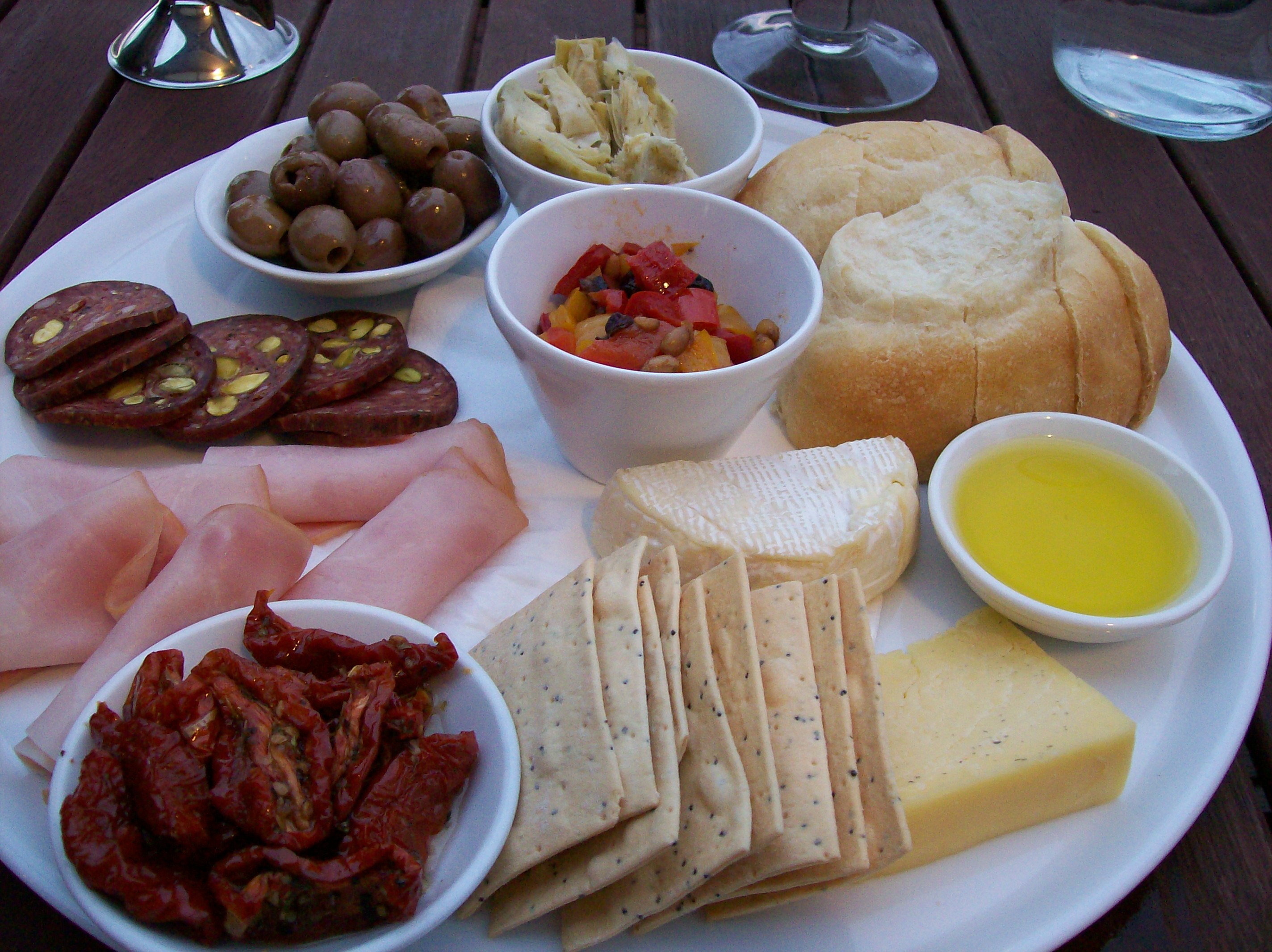
Cold food platter – a popular serve for Christmas in Australia
With Christmas just being around the corner, many of us are starting to get busy with house spring cleaning as well as shopping around for Christmas goodies, decorations and presents for our loved ones. If it is your turn to host this year’s Christmas reunion with friends and family, I guess that by now, you are starting to brainstorm for suitable food to serve your guests. Have you ever thought of preparing party meals that are suitable for most common food allergies?
I must admit – Planning your Christmas banquet can be really tricky. Besides taking into consideration the dishes that everyone would possibly like to eat, you must not forget to ask your guests whether they have any eating or diet restrictions. As the host, you should always strive to prepare party dishes that everyone can enjoy so that noone is left out at your festive gathering.
I this article, I will be talking about four most common food allergies/intolerance that every host should know before planning their party dishes.
Top Food Allergies
Lactose intolerance
Lactose intolerance happens when someone has difficulty in digesting milk sugars from dairy product. This type of intolerance is more commonly found among Australian Aborigines, people from Asia, Africa and the Middle East as well as some from Mediterranean countries. Symptoms of lactose intolerance are bloating, gas, abdominal pain and diarrhoea.
Some tips for hosting guests with lactose intolerance:
– Serve hard and mature cheeses like cheddar, Edam, mozzarella and feta as they contain no lactose.
– Use yoghurt in replacement of coconut cream especially when cooking curries.
– When making coffee/tea, ask them how much milk they can tolerate before serving.
– Be careful when serving cream soups, cheese sauce and creamy desserts. If can, serve the dollop of cream separately or reduce the amount of cream prior to serving.
– Have an option of soy milk for guests who are uncomfortable in drinking milk.
Coeliac Disease and Sensitivity to Gluten
Gluten is the protein found in wheat, rye, barley, triticale and oats. When someone has celiac disease and eats food with gluten, he/she may experience inflammation and damage to their small bowel (intestine). Symptoms of coeliac disease and sensitivity to gluten include anaemia, bloating, diarrhoea/constipation, fatigue, nausea, stomach cramps and weight loss.
If you are hosting guests with coeliac disease and sensitivity to gluten, here are some tips that you may find helpful:
– Check all packaged food and ingredients to see if they are labelled ‘gluten free’.
– Feel free to use fresh fruit and vegetables in your cooking as they are naturally gluten free.
– Be careful when serving food that contains flour such as breads, cakes, crackers/biscuits, sauces and dips. Make sure everything is gluten free before serving.
Seafood allergy
Seafood allergy is one of the most common food allergies in Asia and Scandinavia. Children with asthma are more likely to have seafood allergy. Symptoms of seafood allergy are such as swelling of lips, face, tongue and throat, eczema, wheezing or trouble breathing, abdominal pain, diarrhoea, nausea, vomiting, dizziness and tingling in the mouth.
There are two major groups of seafood that may cause allergic reactions. They are:-
VERTEBRATES Fish
– Examples: salmon, cod, mackerel, sardines, herring, anchovies, tuna, trout, haddock, John Dory, eels and rays.
INVERTEBTRATES (Shellfish)
Examples: prawns/shrimps, lobster, crab, crayfish, yabbies oysters, mussels, clams, octopus, squid, calamari, abalone and sea slugs.
Useful tips for preparing food for people with seafood allergy:
– Ask your guests to be specific when telling you about their seafood allergic reactions.
– Be careful when using pre-made pizzas as they may have shellfish and anchovies in them.
– Always make sure that your sauces and dressings have no traces of seafood in them.
– Be aware of potential cross-contamination when preparing your food. Make sure your food preparation bench, chopping board and barbecue pits/grillers are completely clean from all traces of seafood before preparing non-seafood items.
Peanut Allergy
If you will be hosting guests who are allergic to peanuts, it is advisable that you avoid serving all nut products.
Below are some useful tips when serving guests with peanut allergy:-
– Always ensure that your baked goods like pastries, cakes, cookies, desserts and biscuits do not contain nuts.
– Make sure that the sauces that you use do not contain any traces of nuts.
– When purchasing ready-to-cook products like satay skewers, rissoles be aware of potential cross-contaminations.
– Be sure that your glazes and marinades do not contain nuts.
– When purchasing Asian, African and Mexican dishes, make sure that they do not contain any nuts or peanut oil.
I guess that’s all the tips I can give for preparing party dishes for most common food allergies. Although all care is taken to provide the best information to all of you, there may be some things that I have left out. If in doubt, always check with your guests who have these food allergies before planning your party dishes. I hope you found this article informational enough for you to have a headstart in planning for your fabulous Christmas banquet this year!
References:
http://www.betterhealth.vic.gov.au/bhcv2/bhcarticles.nsf/pages/Food_allergy_and_intolerance
http://www.betterhealth.vic.gov.au/bhcv2/bhcarticles.nsf/pages/Lactose_intolerance
http://www.nutritionaustralia.org/national/resource/lactose-intolerance
http://www.coeliac.org.au/gluten-sensitivity/
http://www.allergy.org.au/patients/food-allergy/allergic-and-toxic-reactions-to-seafood
http://www.mayoclinic.org/diseases-conditions/shellfish-allergy/basics/symptoms/con-20032093
http://www.allergyfacts.org.au/living-with-the-risk/allergen-specifics/peanut